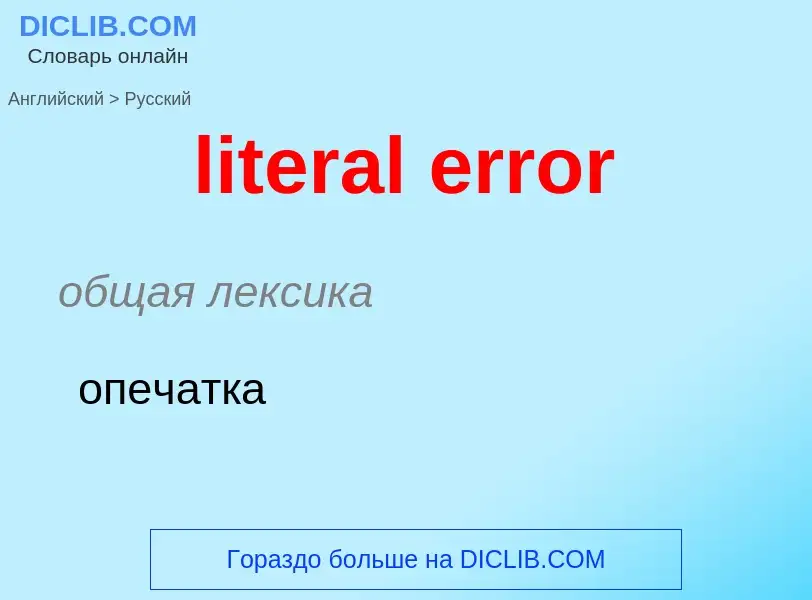Übersetzung und Analyse von Wörtern durch künstliche Intelligenz ChatGPT
Auf dieser Seite erhalten Sie eine detaillierte Analyse eines Wortes oder einer Phrase mithilfe der besten heute verfügbaren Technologie der künstlichen Intelligenz:
- wie das Wort verwendet wird
- Häufigkeit der Nutzung
- es wird häufiger in mündlicher oder schriftlicher Rede verwendet
- Wortübersetzungsoptionen
- Anwendungsbeispiele (mehrere Phrasen mit Übersetzung)
- Etymologie
literal error - Übersetzung nach russisch
общая лексика
опечатка
Definition
Ошибка, оговорка, досадный промах (обычно в устной речи и на письме).
Wikipedia
In mathematical logic, a literal is an atomic formula (also known as an atom or prime formula) or its negation. The definition mostly appears in proof theory (of classical logic), e.g. in conjunctive normal form and the method of resolution.
Literals can be divided into two types:
- A positive literal is just an atom (e.g., ).
- A negative literal is the negation of an atom (e.g., ).
The polarity of a literal is positive or negative depending on whether it is a positive or negative literal.
In logics with double negation elimination (where ) the complementary literal or complement of a literal can be defined as the literal corresponding to the negation of . We can write to denote the complementary literal of . More precisely, if then is and if then is . Double negation elimination occurs in classical logics but not in intuitionistic logic.
In the context of a formula in the conjunctive normal form, a literal is pure if the literal's complement does not appear in the formula.
In Boolean functions, each separate occurrence of a variable, either in inverse or uncomplemented form, is a literal. For example, if , and are variables then the expression contains three literals and the expression contains four literals. However, the expression would also be said to contain four literals, because although two of the literals are identical ( appears twice) these qualify as two separate occurrences.

